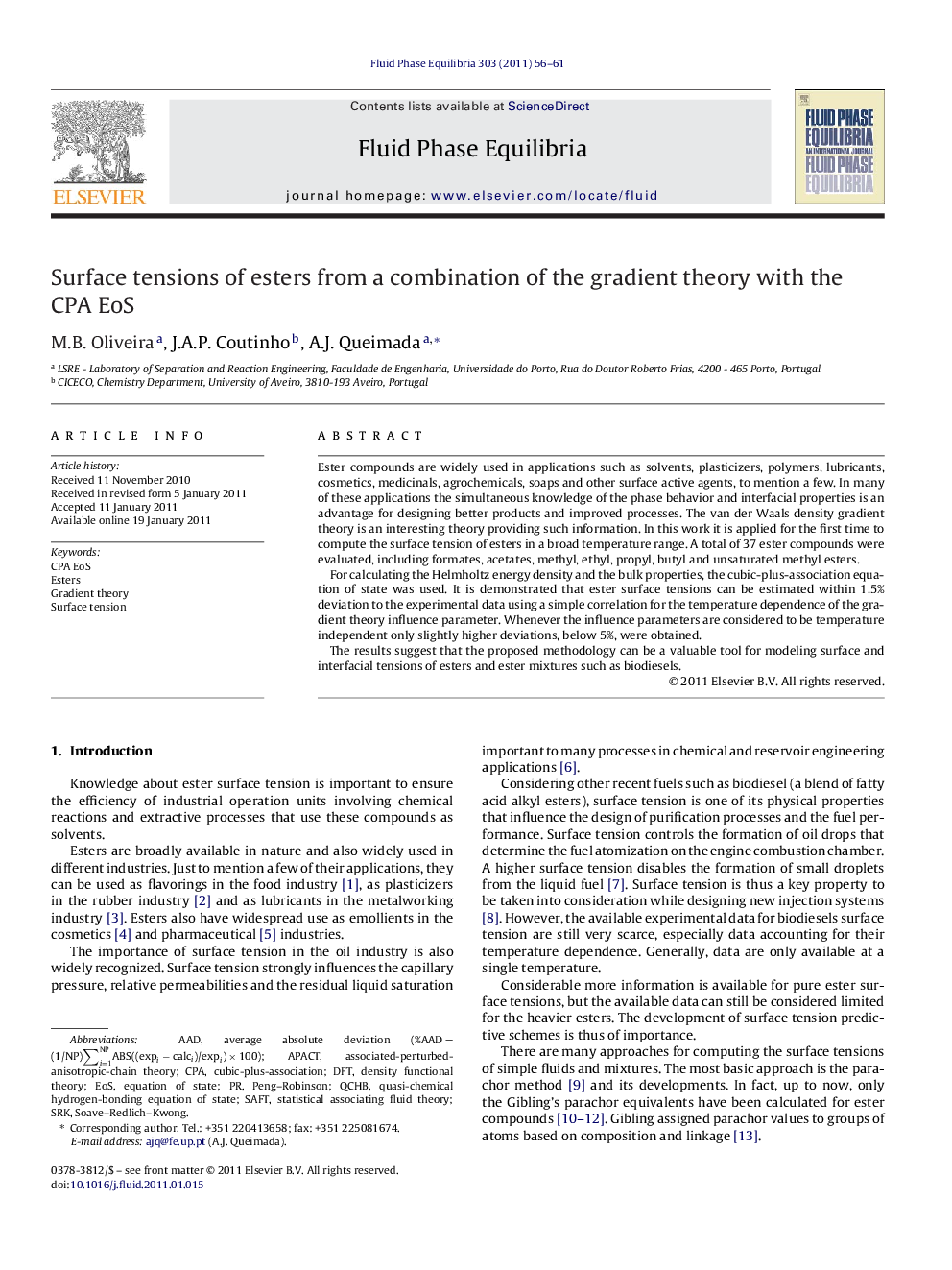| Article ID | Journal | Published Year | Pages | File Type |
|---|---|---|---|---|
| 202515 | Fluid Phase Equilibria | 2011 | 6 Pages |
Ester compounds are widely used in applications such as solvents, plasticizers, polymers, lubricants, cosmetics, medicinals, agrochemicals, soaps and other surface active agents, to mention a few. In many of these applications the simultaneous knowledge of the phase behavior and interfacial properties is an advantage for designing better products and improved processes. The van der Waals density gradient theory is an interesting theory providing such information. In this work it is applied for the first time to compute the surface tension of esters in a broad temperature range. A total of 37 ester compounds were evaluated, including formates, acetates, methyl, ethyl, propyl, butyl and unsaturated methyl esters.For calculating the Helmholtz energy density and the bulk properties, the cubic-plus-association equation of state was used. It is demonstrated that ester surface tensions can be estimated within 1.5% deviation to the experimental data using a simple correlation for the temperature dependence of the gradient theory influence parameter. Whenever the influence parameters are considered to be temperature independent only slightly higher deviations, below 5%, were obtained.The results suggest that the proposed methodology can be a valuable tool for modeling surface and interfacial tensions of esters and ester mixtures such as biodiesels.
Research highlights► The density gradient theory was applied to describe ester surface tensions. ► The cubic-plus-association equation of state was used to compute the phase equilibria. ► A linear correlation for the influence parameter temperature dependency was adopted. ► Surface tension of 37 esters was estimated with global average errors of only 1.5%.
